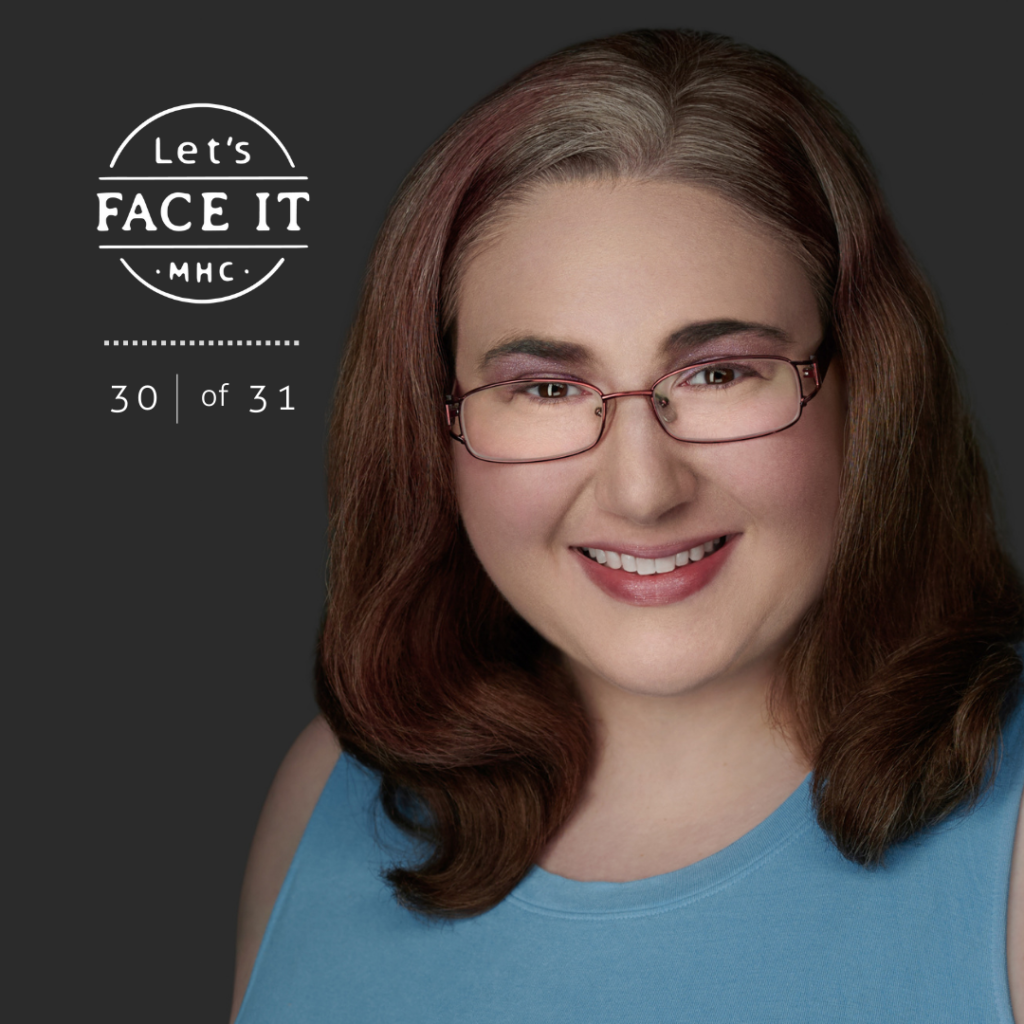#LetsFaceIt
 In fiction, families are often portrayed as the most supportive of a character in trouble. In real life, that is not always the case. It’s a behavior that Jennifer Korwitz hopes sharing her story will help change.
In fiction, families are often portrayed as the most supportive of a character in trouble. In real life, that is not always the case. It’s a behavior that Jennifer Korwitz hopes sharing her story will help change.
An art student working on her second bachelor’s degree to become an art therapist, Korwitz was seven when she was first diagnosed with what ultimately became a litany of mental health issues. It didn’t hold her back, though, in part because of her mother. “My mom was a big advocate for me when I was a kid,” she says. “She taught me how to be an advocate. The successes I’ve had weren’t easy to come by but they were because I could advocate for myself.”
Sometimes, Korwitz says, that meant advocating even to her mother. “I had to advocate to her that I could do college. She was concerned I couldn’t handle the stress of college.” she says. They agreed that she would do one semester of college and if anything went wrong, she would go back to the community home where she was living. Korwitz did well, ultimately getting her first bachelor’s degree to become a recreational therapist.
Korwitz’s mother died 13 years ago, leaving her to deal with other family members who Korwitz says are less supportive. “The biggest stigma I’ve faced is family stigma. My family does not understand. I grew up having mental illness and yet my own family doesn’t understand it. I was lucky when my mother lived. She was involved in NAMI and got a great understanding of what I was going through and was able to help me. My father and my brothers buy into the stigma. The way they behave is either I’m so ill I should be locked up in an institution or faking it for attention. When you’re faced with a family that doesn’t understand or try to understand what you’re going through on a day-to-day basis, it makes it really hard to function.”
Korwitz has taken steps to distance herself from these stigmatized views. She is married and getting her second degree to begin a new career. “I have learned that some people won’t change their mind,” she says. Instead she tries to surround herself with people who are supportive of her skills and abilities.
“You can’t change others. You can try to educate people but you can’t force change. You can choose who you associate with,” she says. “If you’re in a situation where you can move, do so. Take care of yourself. Pick your battles.”
And to those family members who may be struggling with accepting a loved one’s diagnosis, Korwitz offers this: “The best thing I can say is get involved with organizations like NAMI, go to therapy with loved ones, ask questions. If you’re struggling to understand, talk with your loved one. Find out what they need. Don’t assume they’re making it up. Once you understand there are triggers out there, that the person is not making it up, it will be easier to see that they’re struggling. They’re dealing with real issues every day. We’re working on problems that may not seem like problems to other people, but they’re problems to us. We want a good life like everybody else but sometimes it’s more difficult to get there. If you work with us, slowly and surely, we will get there.”
Looking for resources or support in CT but don’t know where to start? Contact MHC’s free Information & Referral line: https://www.mhconn.org/education/information.


